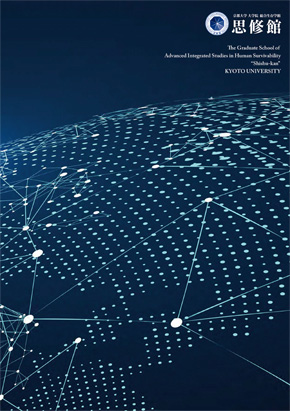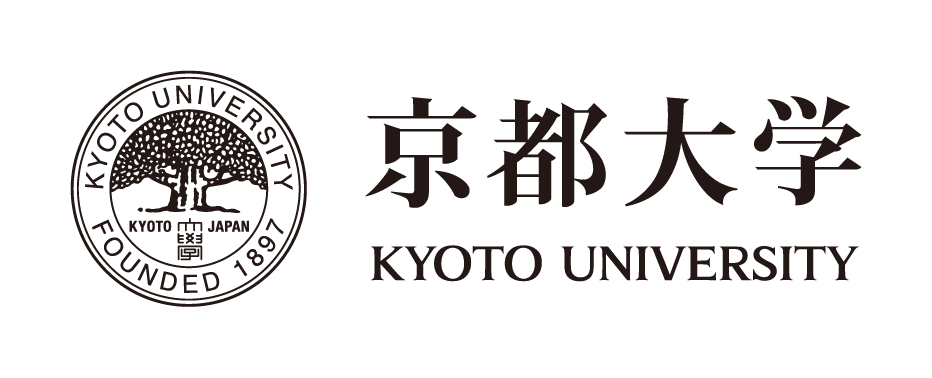ABOUT: CURRICULUM
Last update: 2016-12-13
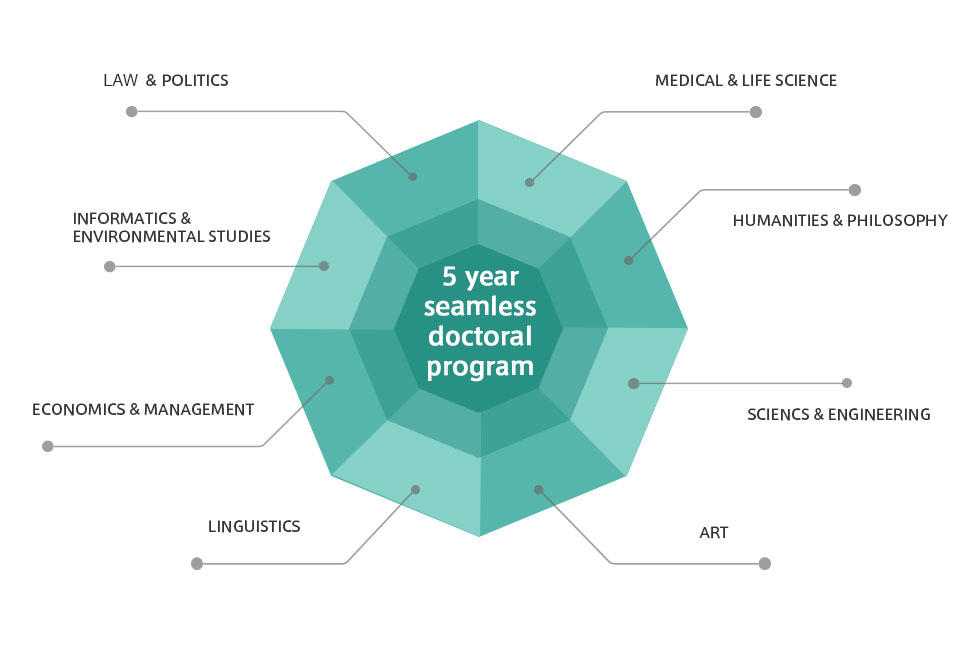
SPECIAL RESEARCH SEMINAR 1
(including domestic internships)
Special Core Courses
(required electives)
Industry-Government
Cooperation Seminer (Jukugi)1
Common Basic Cources
CULTIVATING DIVERSE THINKING THROUGH DEBATES (1st and 2nd year) (Jukugi)
–>>Lectures from, discussions and debates with top global leaders from different sectors around the world<<--
As part of a curriculum designed to cultivate diverse thinking, we find that it is important for students to develop their debating proficiency as well. Students learn to discuss complex issues with faculty members and experts to hone their ability to express their thoughts, persuade listeners, and refine their skills as conscious global leaders via simulated experiences.
1st year:
-Students attend lectures and engage in debates given by experts from outside of the university. They are specially appointed by professors to support their tailored curriculum and chosen subjects. These lecturers are leaders of international organizations and industrial, official and business circles from around the world.
2nd year:
-In order to become familiar with leadership-thinking students join a series of lectures and discussions lead by a single instructor. Students learn to offer evidence-based solutions to global problems, which have no definitive solution yet.
Through active engagements and exposure, students are expected to develop their sense of humanity, focus upon their mission as a leader and sharpen their communication skills.
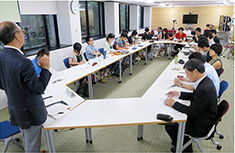
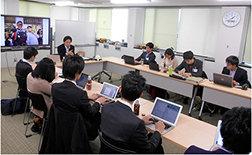
SPECIAL RESEARCH IN MAJOR SUBJECTS (1st, 2nd and 3rd year)
In the first and second year, students undergo professional training in their area of expertise. At the same time, they conduct special research in their chosen area until their 3rd year. Concrete research themes will be decided through discussions between students and faculty members at the time of admission. During research, students will deal with not only their current fields but also with fields of possible future interest by hypothesizing and developing research methodologies. The quality of research in their area of expertise is checked to be up to standard and similar to the level of other graduate school degree programs.
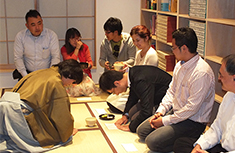
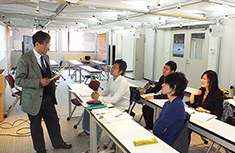
DOMESTIC AND INTERNATIONAL SERVICE LEARNING (1st and 2nd year)
At the GSAIS we find it important that students understand and develop the ability to act accordingly to various environments, circumstances and communities. We believe that this in turn translates to being a true leader. Students undergo domestic and international service learning and develop the social skills necessary for true leadership.
Students learn about volunteering and the difficulties leaders face when confronted with cultural and societal differences. Students acquire the necessary social skills and international understanding through active hands-on engagement.
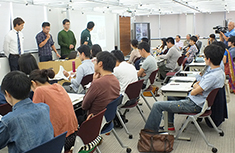
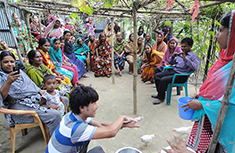
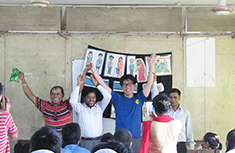
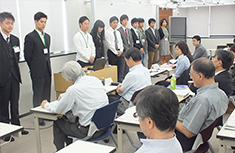
SUPPORT for STUDENTS by Shishu-kan Program of MEXT
1: Residential College
With a view toward creating an environment for training / research designed to develop the ability in students of demonstrating leadership in cultural circumstances different from their own – one of the requirements of a global leader – the program provides a residential college where students may experience Kyoto University’s tradition of conducting advanced education / research interactively, i.e., working hard together and mingling day and night with other students from varying cultural and academic backgrounds, as they lead their daily lives while concentrating on their research and studies, and attending the special lecture and discussion and lectures as well.
2: Grants
Grants will be provided in order to allow students to better concentrate on their educational curricula and doctoral thesis research by alleviating their economic burden (tuition, etc.). In addition, expenses for conducting original educational / research activities will be covered when such is deemed necessary.
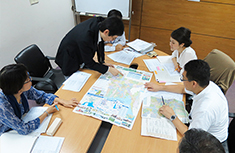
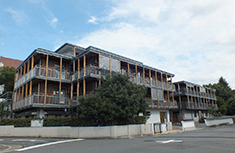
more
SPECIAL RESEARCH SEMINAR 2
(including overseas internships)
Special Core Courses A,B
(required electives)
Industry-Government
Cooperation Seminer (Jukugi)2
Common Basic Cources
CULTIVATING DIVERSE THINKING THROUGH DEBATES (1st and 2nd year) (Jukugi)
–>>Lectures from, discussions and debates with top global leaders from different sectors around the world<<--
As part of a curriculum designed to cultivate diverse thinking, we find that it is important for students to develop their debating proficiency as well. Students learn to discuss complex issues with faculty members and experts to hone their ability to express their thoughts, persuade listeners, and refine their skills as conscious global leaders via simulated experiences.
1st year:
-Students attend lectures and engage in debates given by experts from outside of the university. They are specially appointed by professors to support their tailored curriculum and chosen subjects. These lecturers are leaders of international organizations and industrial, official and business circles from around the world.
2nd year:
-In order to become familiar with leadership-thinking students join a series of lectures and discussions lead by a single instructor. Students learn to offer evidence-based solutions to global problems, which have no definitive solution yet.
Through active engagements and exposure, students are expected to develop their sense of humanity, focus upon their mission as a leader and sharpen their communication skills.


SPECIAL RESEARCH IN MAJOR SUBJECTS (1st, 2nd and 3rd year)
In the first and second year, students undergo professional training in their area of expertise. At the same time, they conduct special research in their chosen area until their 3rd year. Concrete research themes will be decided through discussions between students and faculty members at the time of admission. During research, students will deal with not only their current fields but also with fields of possible future interest by hypothesizing and developing research methodologies. The quality of research in their area of expertise is checked to be up to standard and similar to the level of other graduate school degree programs.


DOMESTIC AND INTERNATIONAL SERVICE LEARNING (1st and 2nd year)
At the GSAIS we find it important that students understand and develop the ability to act accordingly to various environments, circumstances and communities. We believe that this in turn translates to being a true leader. Students undergo domestic and international service learning and develop the social skills necessary for true leadership.
Students learn about volunteering and the difficulties leaders face when confronted with cultural and societal differences. Students acquire the necessary social skills and international understanding through active hands-on engagement.




SUPPORT for STUDENTS by Shishu-kan Program of MEXT
1: Residential College
With a view toward creating an environment for training / research designed to develop the ability in students of demonstrating leadership in cultural circumstances different from their own – one of the requirements of a global leader – the program provides a residential college where students may experience Kyoto University’s tradition of conducting advanced education / research interactively, i.e., working hard together and mingling day and night with other students from varying cultural and academic backgrounds, as they lead their daily lives while concentrating on their research and studies, and attending the special lecture and discussion and lectures as well.
2: Grants
Grants will be provided in order to allow students to better concentrate on their educational curricula and doctoral thesis research by alleviating their economic burden (tuition, etc.). In addition, expenses for conducting original educational / research activities will be covered when such is deemed necessary.


more
SPECIAL RESEARCH PROJECT 1
Special Core Courses A,B
(required electives)
Common Basic Cources
SPECIAL RESEARCH IN MAJOR SUBJECTS (1st, 2nd and 3rd year)
In the first and second year, students undergo professional training in their area of expertise. At the same time, they conduct special research in their chosen area until their 3rd year. Concrete research themes will be decided through discussions between students and faculty members at the time of admission. During research, students will deal with not only their current fields but also with fields of possible future interest by hypothesizing and developing research methodologies. The quality of research in their area of expertise is checked to be up to standard and similar to the level of other graduate school degree programs.


INTEGRATED ACADEMIC FOUNDATION LECTURES (3rd year)
Third-year students will undergo integrated academic foundation lectures that are tailored to each individual’s area of focus. Students bring with them a rigorous and analytical mindset acquired through practical training and service learning in the previous two years. Lectures are offered in 8 fields: Humanities, Economics, Law, Engineering, Physical Science, Agricultural Science, Information Science and Medical Science / Life Science. These lectures will form the foundation of the integrated academic knowledge that the students will acquire, further helping them in their research and problem solving abilities. Through this program, students develop flexible thinking habits, which in turn aid in the process of resolving complex interdisciplinary issues. Since students are trained in becoming global leaders, most lectures are given in English.
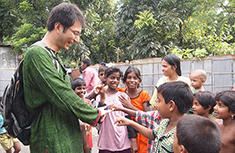
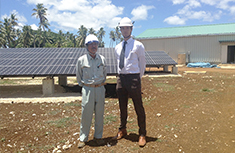
SUPPORT for STUDENTS by Shishu-kan Program of MEXT
1: Residential College
With a view toward creating an environment for training / research designed to develop the ability in students of demonstrating leadership in cultural circumstances different from their own – one of the requirements of a global leader – the program provides a residential college where students may experience Kyoto University’s tradition of conducting advanced education / research interactively, i.e., working hard together and mingling day and night with other students from varying cultural and academic backgrounds, as they lead their daily lives while concentrating on their research and studies, and attending the special lecture and discussion and lectures as well.
2: Grants
Grants will be provided in order to allow students to better concentrate on their educational curricula and doctoral thesis research by alleviating their economic burden (tuition, etc.). In addition, expenses for conducting original educational / research activities will be covered when such is deemed necessary.


more
SPECIAL RESEARCH PROJECT 2
Overseas Fieldwork
ONE-YEAR OVERSEAS FIELDWORK TO GAIN HANDS-ON EXPERIENCE (4th year)
Students also undergo a one-year internship at an organization abroad. This practical approach to learning will help them to gain real life hands-on experience. GSAIS collaborates with international organizations such as the UN, UNESCO and other leading international organizations, companies and universities. This gives students a great opportunity to get involved with large organizations and learn how they operate.
Throughout this practical approach to learning, students learn to position themselves within a global context and alter their awareness. They experience a sense of responsibility as an international leader within a global context. They are expected to develop their overall social and communicatory abilities in addition to their leadership skills.
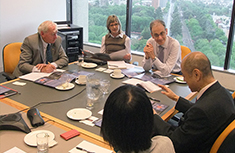
SUPPORT for STUDENTS by Shishu-kan Program of MEXT
1: Residential College
With a view toward creating an environment for training / research designed to develop the ability in students of demonstrating leadership in cultural circumstances different from their own – one of the requirements of a global leader – the program provides a residential college where students may experience Kyoto University’s tradition of conducting advanced education / research interactively, i.e., working hard together and mingling day and night with other students from varying cultural and academic backgrounds, as they lead their daily lives while concentrating on their research and studies, and attending the special lecture and discussion and lectures as well.
2: Grants
Grants will be provided in order to allow students to better concentrate on their educational curricula and doctoral thesis research by alleviating their economic burden (tuition, etc.). In addition, expenses for conducting original educational / research activities will be covered when such is deemed necessary.


more
SPECIAL RESEARCH PROJECT 3
Project-Based Research
PROJECT-BASED LEARNING (5th year)
In their final year, students are required to carry out a sophisticated research project rooted in the area of expertise obtained in their first three years. Based on their previous research outcomes, plans for the future and their internship experience abroad, students develop a project that they will devise and later carry out with the involvement of Japanese enterprises and government agencies.
Project-based learning helps students to hone their ability to plan, act, communicate and negotiate. These skills are necessary for addressing multidisciplinary global problems. By the end of their 5th year, students are expected to discuss and verify their hypothesis, methodology and plans for applying their professional research results to society. They are also required to complete their degree thesis.
In executing their projects, students must work with their peers in budgeting funds and gathering project members. They also coordinate matters with relevant organizations and deal with legal and managerial affairs. Students are required to fund their own projects by asking for contributions to the project from the general public and seeking sponsorship from organizations or private enterprises.
Throughout this project-based learning program, students receive the necessary guidance, support and mentoring from faculty members and external experts appointed by professors at the faculty.
-Students work with their peers on budgeting, gathering project members, coordinating matters with the relevant organizations and deal with the legal and managerial affairs.
-Students are required to fund their own projects. They seek sponsorship from organizations, private enterprises and inviting contributions to the program from the public.
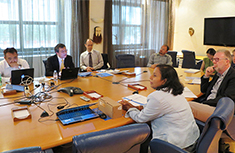
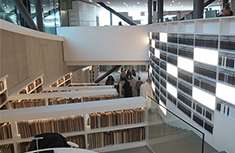
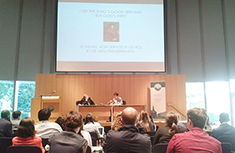
SUPPORT for STUDENTS by Shishu-kan Program of MEXT
1: Residential College
With a view toward creating an environment for training / research designed to develop the ability in students of demonstrating leadership in cultural circumstances different from their own – one of the requirements of a global leader – the program provides a residential college where students may experience Kyoto University’s tradition of conducting advanced education / research interactively, i.e., working hard together and mingling day and night with other students from varying cultural and academic backgrounds, as they lead their daily lives while concentrating on their research and studies, and attending the special lecture and discussion and lectures as well.
2: Grants
Grants will be provided in order to allow students to better concentrate on their educational curricula and doctoral thesis research by alleviating their economic burden (tuition, etc.). In addition, expenses for conducting original educational / research activities will be covered when such is deemed necessary.


more



